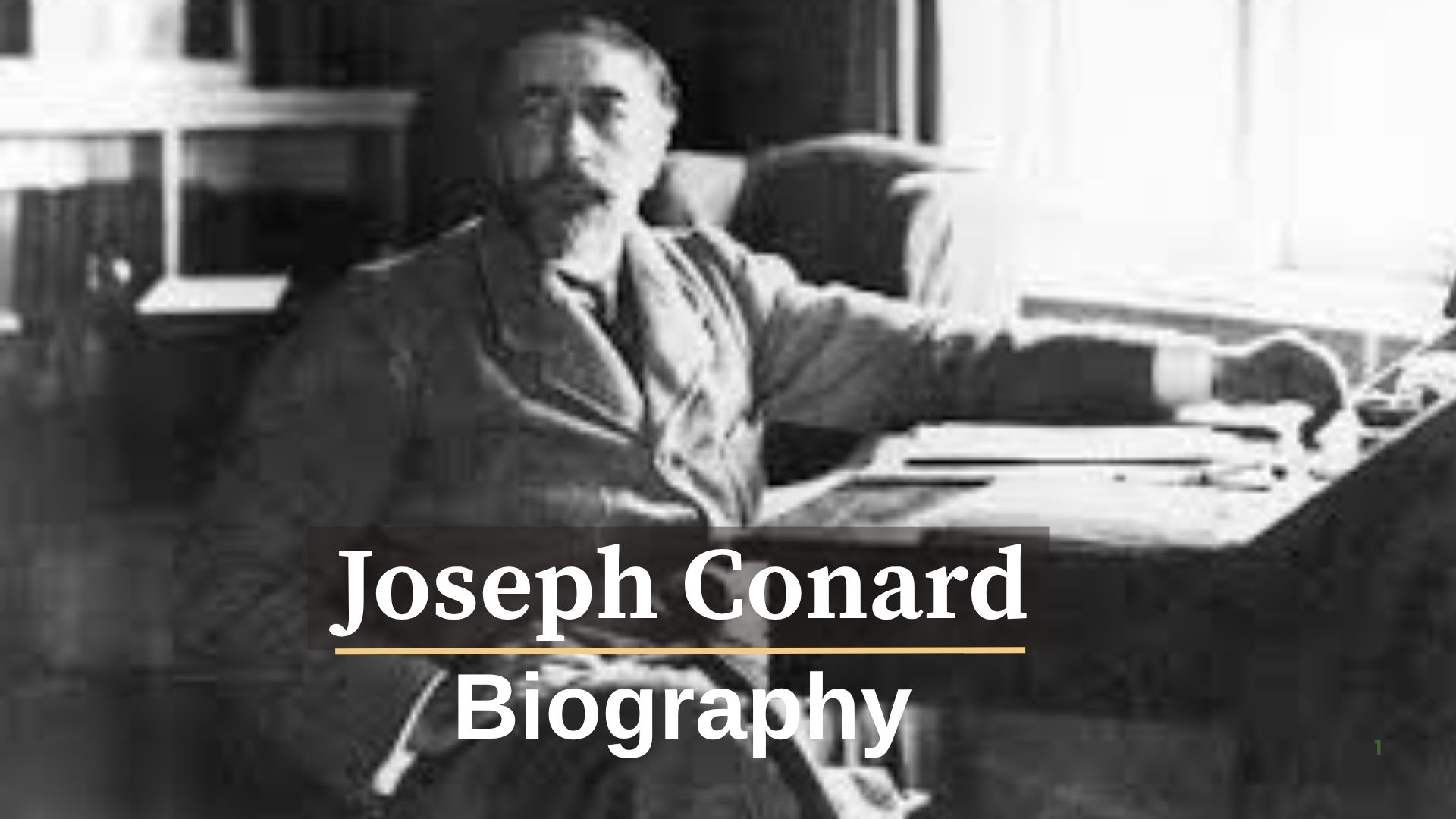Introduction
Joseph Conrad Biography is widely regarded as one of the greatest novelists in the English language. Known for his profound explorations of morality, isolation, and imperialism, his works continue to shape global literature and post-colonial studies. Though English was his third language, Conrad’s mastery of prose, complex characters, and psychological depth has influenced generations of writers.
This biography delves into the remarkable life and literary journey of Joseph Conrad, born Józef Teodor Konrad Korzeniowski in Poland.
Early Life and Background
Joseph Conrad was born on December 3, 1857, in Berdychiv, Ukraine, which was part of the Russian Empire at the time, to Polish parents of noble descent.
His father, Apollo Korzeniowski, was a writer, translator, and political activist, whose anti-Russian sentiments led to the family’s exile in northern Russia. These early experiences of political oppression and loss shaped Conrad’s worldview and thematic concerns later in life.
After both his parents died by the time he was 11, Conrad was raised by his uncle in Kraków, Poland.
Career as a Sailor
At the age of 16, Conrad left Poland and traveled to France to become a merchant seaman. He later joined the British Merchant Navy, eventually becoming a British citizen in 1886.
His 20 years at sea, particularly his travels to the Congo, Far East, and South America, deeply informed the settings and themes of his future novels. The brutality and hypocrisy of European colonialism he witnessed firsthand would become central to his writing.
Transition to Writing
Conrad began writing while still at sea, and by 1894, he published his first novel, “Almayer’s Folly”. It was the beginning of a literary career that would produce some of the most enduring works of the 20th century.
Major Works
- Heart of Darkness (1899):
Perhaps his most famous work, this novella explores colonialism in the Congo through the journey of Marlow, a sailor in search of the enigmatic Kurtz. The story delves into moral ambiguity, imperialism, and the darkness within the human soul. - Lord Jim (1900):
A tale of redemption and cowardice, Lord Jim explores honor, guilt, and personal responsibility. - Nostromo (1904):
Set in a fictional South American country, this novel critiques capitalism, revolution, and imperial exploitation. - The Secret Agent (1907):
A darkly humorous take on espionage, terrorism, and political corruption in London. - Under Western Eyes (1911):
A psychological and political narrative set in Russia, often seen as a counterpoint to Dostoevsky’s “Crime and Punishment.”
Literary Style and Themes
Joseph Conrad’s writing is known for:
- Nonlinear narratives
- Unreliable narrators
- Dense, descriptive prose
- Moral and psychological introspection
- Themes of alienation, imperialism, and existential dread
Despite not being a native speaker, his English was rich, complex, and poetic, drawing comparisons to modernists like T.S. Eliot and Virginia Woolf.
Personal Life
In 1896, Conrad married Jessie George, an Englishwoman, and had two sons. He lived in England for the rest of his life and maintained friendships with literary figures like Henry James, H.G. Wells, and Stephen Crane.
Though he struggled financially for much of his career, he gained recognition later in life and was offered a knighthood in 1924, which he declined.
Death and Legacy
Joseph Conrad died of a heart attack on August 3, 1924, in Kent, England.
His legacy has only grown in stature. Today, he is studied in literature, philosophy, and post-colonial studies departments worldwide. His works continue to be adapted into films, notably “Apocalypse Now” (1979), a modern retelling of Heart of Darkness set during the Vietnam War.
